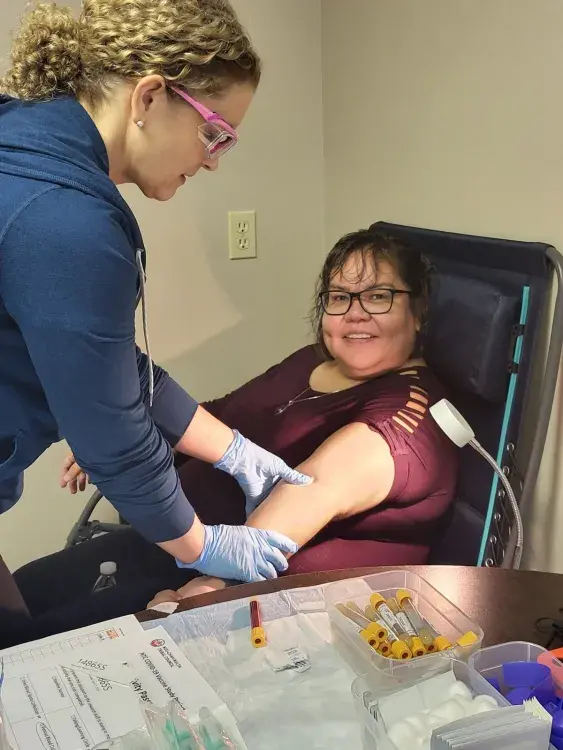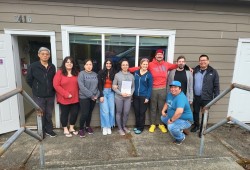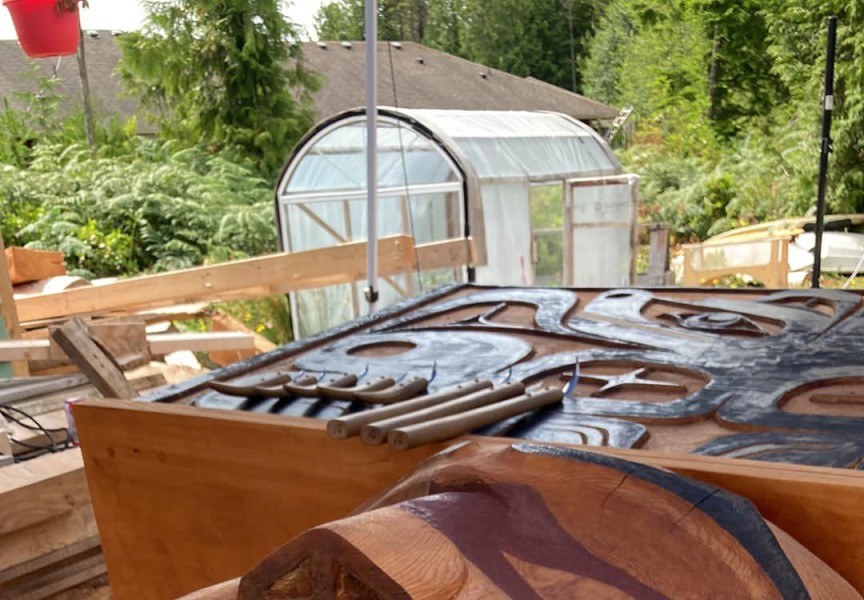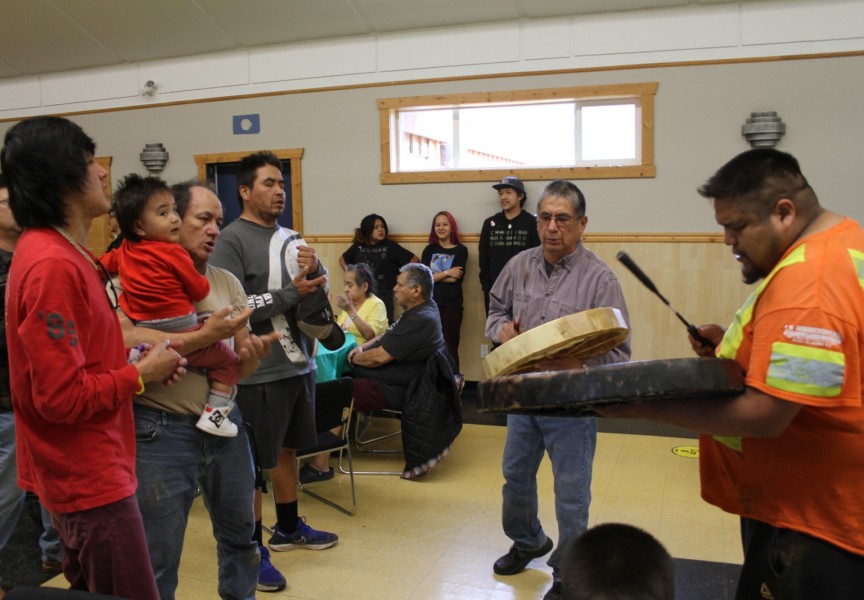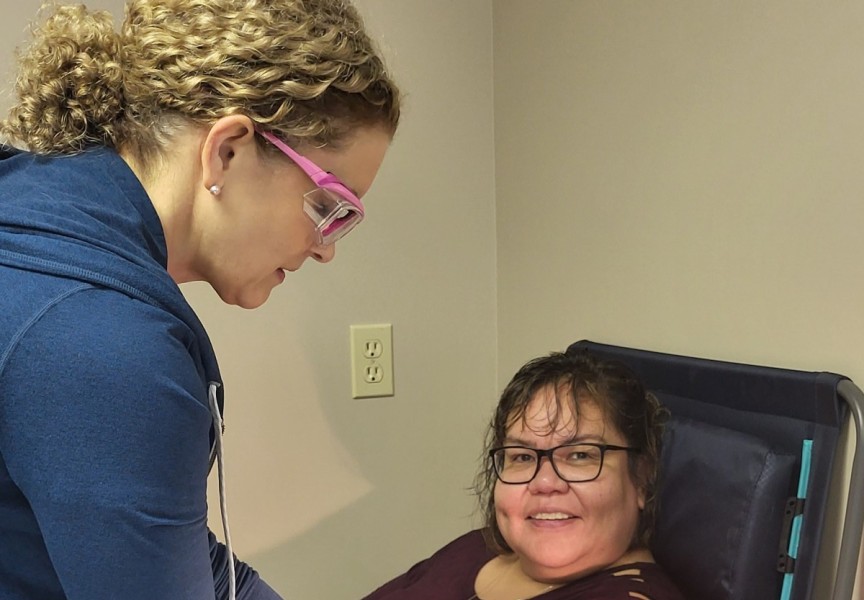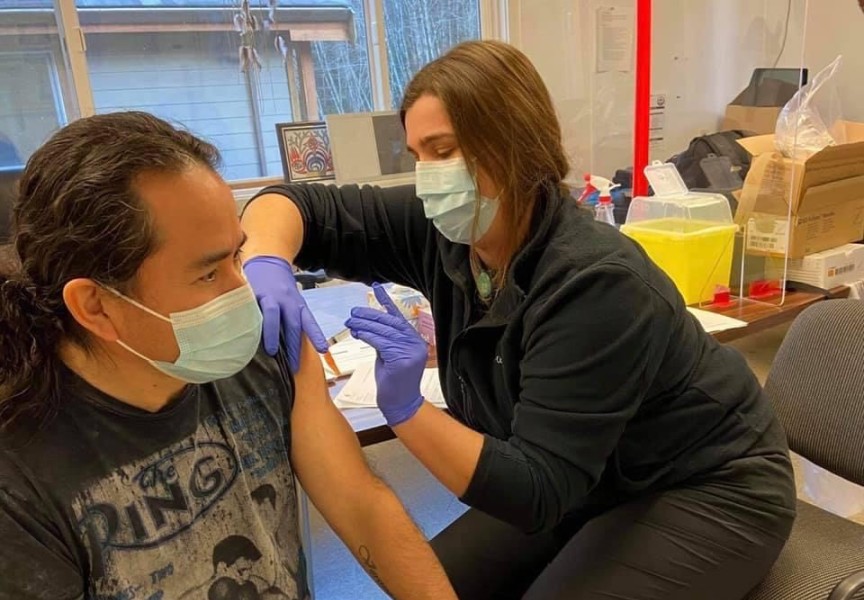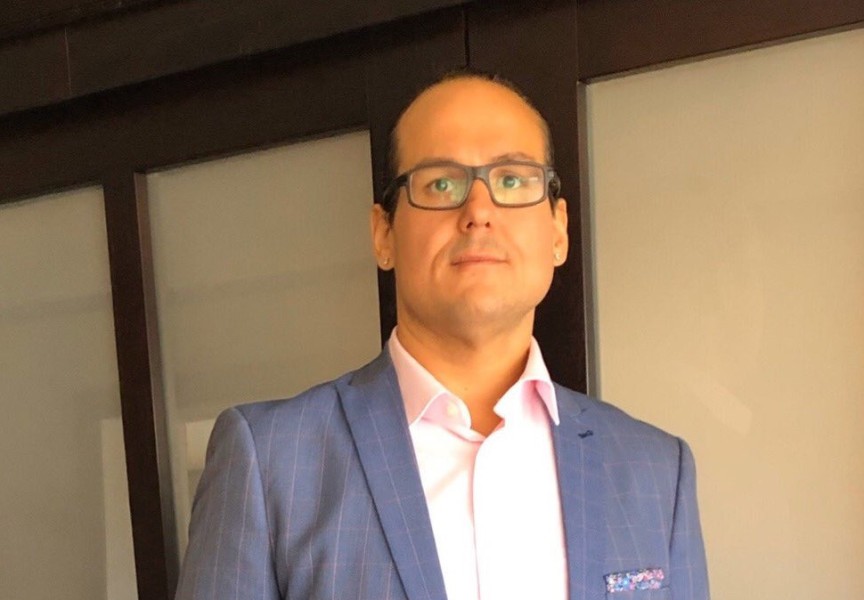An ongoing study is looking back on how COVID-19 affected Nuu-chah-nulth people, with attention to the effectiveness of the vaccine, people’s immune response and how communities were impacted by the pandemic.
The project is driven by the Nuu-chah-nulth Tribal Council (NTC), in partnership with Simon Fraser University and National Microbiology Lab. The COVID-19 Vaccine Study looks into Nuu-chah-nulth’s immune response, vaccine effectiveness, and safety, aiming to help future planning of health services and programs while researchers hope their collaborative approach will lay a foundation for how research is conducted with Indigenous people.
“It was a totally co-creative outreach model of research, which is totally unique in research, it doesn't usually happen,” said Dr. Roger Boyer II, director of research for the project. “It was really good to see the leadership support that and actually expect that from the Public Health Agency of Canada.”
“This project [was] from our Nuu-chah-nulth people, by our Nuu-chah-nulth people and for our Nuu-chah-nulth people,” said Guanghong Han, lead scientist on the project.
“[It] was important that we did it in a co-creative, co-driven way,” added Boyer. “Nuu-chah-nulth people took their rightful place and their responsibility within this research.”
In this unique approach, researchers spent six to nine months building relationships with each of the 14 Nuu-chah-nulth communities involved in the project, by helping establish working groups in each First Nation.
A total of 43 “co-creation meetings” were held, and 12 of the 14 Nuu-chah-nulth nations entered collaborative agreements, which would define how research activities would be conducted within each community, said Boyer.
Among the major agreement’s developed was the blood sampling protocol, which would appoint a biospecimen guardian to oversee samples. The specimens were collected to measure antibodies, processed, stored, shipped, and repatriated appropriately, shared Boyer.
Throughout the project a total of 50 data collection events were held, shared Boyer. Thirteen of these took place in Port Alberni, Nanaimo, Campbell River, Victoria, and Vancouver, while the remaining 37 meetings were held in Nuu-chah-nulth communities.
Their quality team, who facilitated talking circles, their blood sampling team, and their survey team were present at each intake event, Boyer added.
“For us, it took a lot longer because we wanted to build trust, we wanted to make sure that we did things right the first time,” said Boyer. “On the wake of the bad blood study, we made intentional changes to our research protocol and our methodology.”
According to a series of 2013 Ha-Shilth-Sa articles, the bad blood study was originally a “beacon of hope” for Nuu-chah-nulth members suffering from rheumatic disease, when Dr. Richard Ward was conducting research for its cure in the 1980s. With 883 samples provided for the study of rheumatic diseases, Ward left town to work internationally, using the Nuu-chah-nulth blood for other genetic anthropology studies.
For Boyer, it is important to note that this research is a truth and reconciliation project.
“We wanted [each nation] to be able to be a part of the project,” said Boyer. “We needed them to drive the project.”
Typically, scientific research is absent of community feedback and input, said Han. But for this research project, using a two-eyed seeing approach, they combined both science-based research and input from the communities.
The results of this research, said Han, can help communities move forward with more knowledge to better respond to COVID-19 or another public health emergencies, while understanding the impacts of the pandemic “as a whole”, he continued.
“From this project, we will know from different people, different communities… how this pandemic affected our community, [including] mental health, physical health, spiritual health, and cultural wellness,” said Han, noting that this research also includes how people responded to public health measures, including the COVID-19 vaccine.
But Han shared that an analysis is still being conducted and hopes to see the preliminary findings by the end of the month, while working with the communities on knowledge translation.
“I hope for this project we're putting some kind of foundation for future research,” said Han. “Particularly how to collaborate with the community, not just for the Nuu-chah-nulth community… with all the Indigenous communities.”

